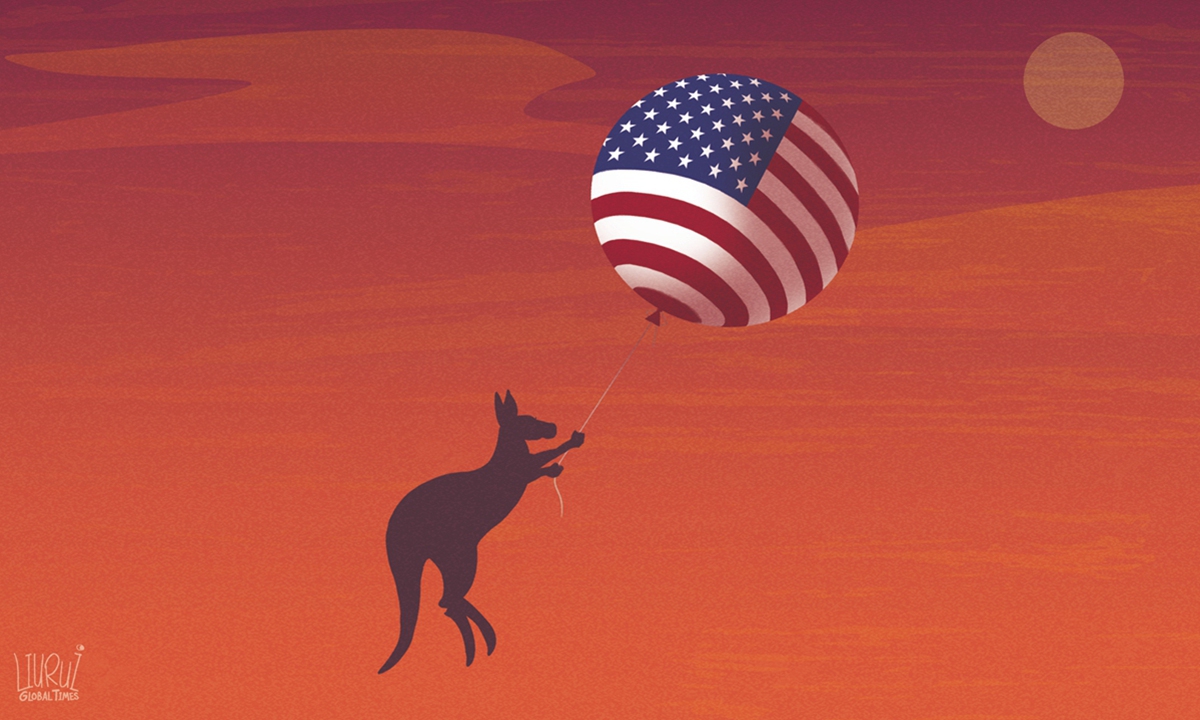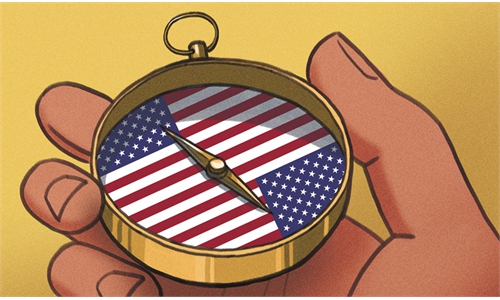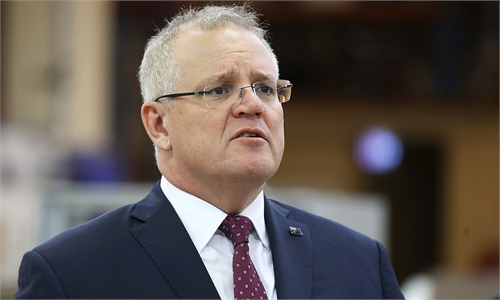
Illustration: Liu Rui/GT
"Why is Australia building missiles? Because America might hoard all its missiles for itself." This was the title of an article published by Forbes on April 14. "If there is one lesson that nations have learned from the COVID-19 pandemic, it's this: If you don't make a product, then you have to depend on others to make it for you," the author said, adding that "If nations can hoard vaccines, they can also hoard missiles." By hoarding vaccines, Washington has raised allies' doubts against its security commitments.
Australian Prime Minister Scott Morrison announced on March 31 that the country would begin building its own missiles in close collaboration with Washington. This included potential commercial partners, such as large US weapons manufacturers like Lockheed Martin and Raytheon.
During the four years of the Trump administration, the US was constantly weakening its alliance system. This being the case, US allies are not sure whether or not the US would still be a reliable ally in emergency situations such as wars. To some extent, US allies have lost their trust in US' security commitments.
Due to the "America First" policy, US allies may have wanted to improve their strategic autonomy and their own defense capabilities. However, the US has many allies, who still rely heavily on the US as a security umbrella. Not all of them have the ability to develop defense capabilities on their own.
Take Australia. It will rely on US companies in building missiles because there is a large technological gap between Australia and the US. Technology is the most critical part of building missiles. Therefore, Australia will heavily depend on the US during their cooperation.
US allies are in a state of unequal strength in their security alliance with Washington. For example, according to an Associated Press report in March, it has been decades since Australia last manufactured advanced missiles. It currently relies on importing them from allies, including the US. In fact, it is very difficult for US allies to rid themselves on dependency from Washington. They are also very unlikely to have their own security policies or autonomy with weapons or equipment.
US allies depend on US' shelter in order to maintain their own security. Some observers in Australia said that Canberra develops its own missiles to cope with the so-called China threat and an ever more unstable situation in the Indo-Pacific region. But when US allies have their own independent security policies, it could become a variable for stability in the region. More importantly, the US will not allow its allies to have their own autonomy - all of the US maneuvers are aimed at serving its alliance system as well as its global hegemonic status.
In February, a report by a task force from the Chicago Council on Global Affairs argued that "fraying American alliances and a rapidly changing security environment have begun to call into question the continued America's nuclear security guarantees and threaten the long-term viability of the 50-year-old nuclear nonproliferation regime." Washington's leadership role and US allies' confidence toward the US security commitment did not fall in one day. They were gradually eroded by the "America First" doctrine and many moves of the Trump administration.
The US withdrawal from the Paris Climate Agreement and the World Health Organization, combined with its inconsistent behaviors, has had a major impact. US' previous positive reputation will not resume with Biden taking office. The US will find it hard to restore its leadership role and rebuild the confidence of its allies. Time is needed as the US fulfills its promises to the international community and its allies under a multilateral world, and as it takes on the responsibility as a major power.
The author is a deputy director of South Pacific Research Study, Institute of Southeast Asian and Oceanian Studies, China Institutes of Contemporary International Relations. opinion@globaltimes.com.cn



